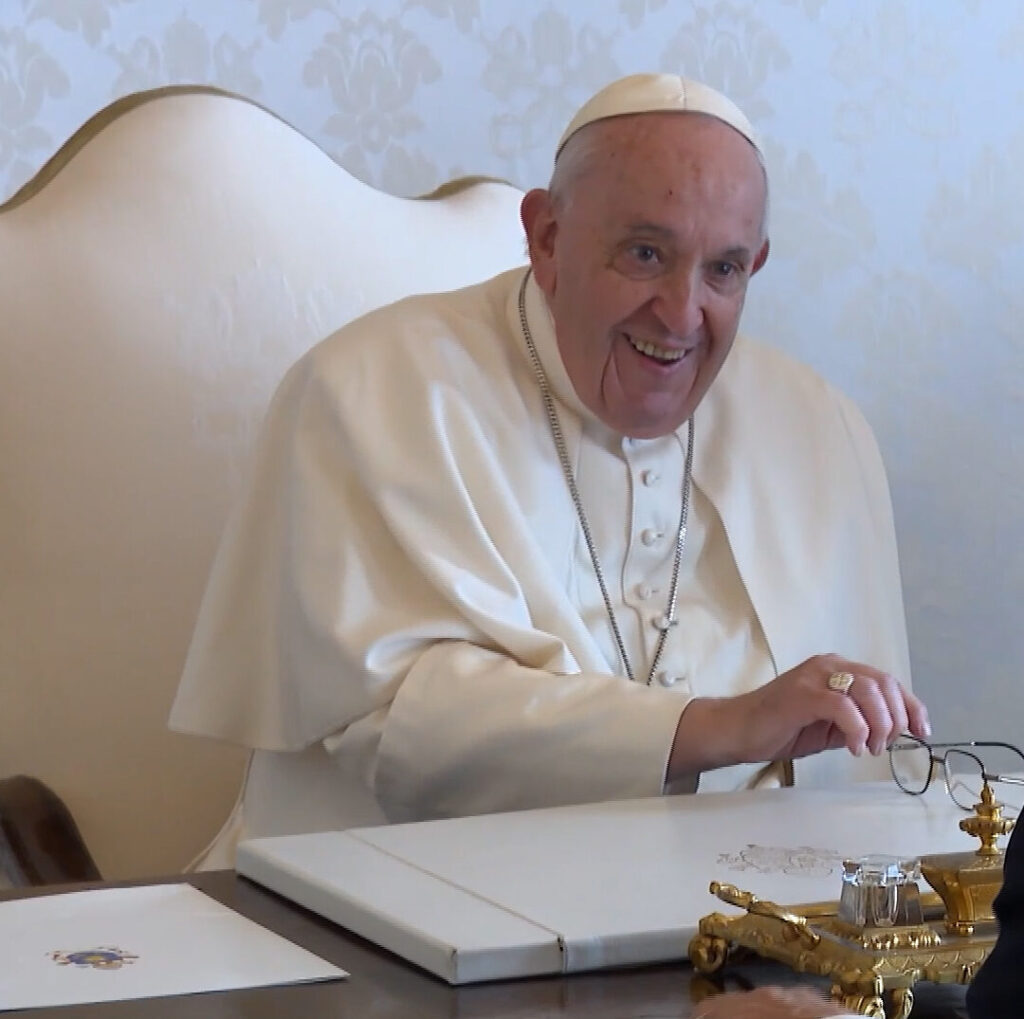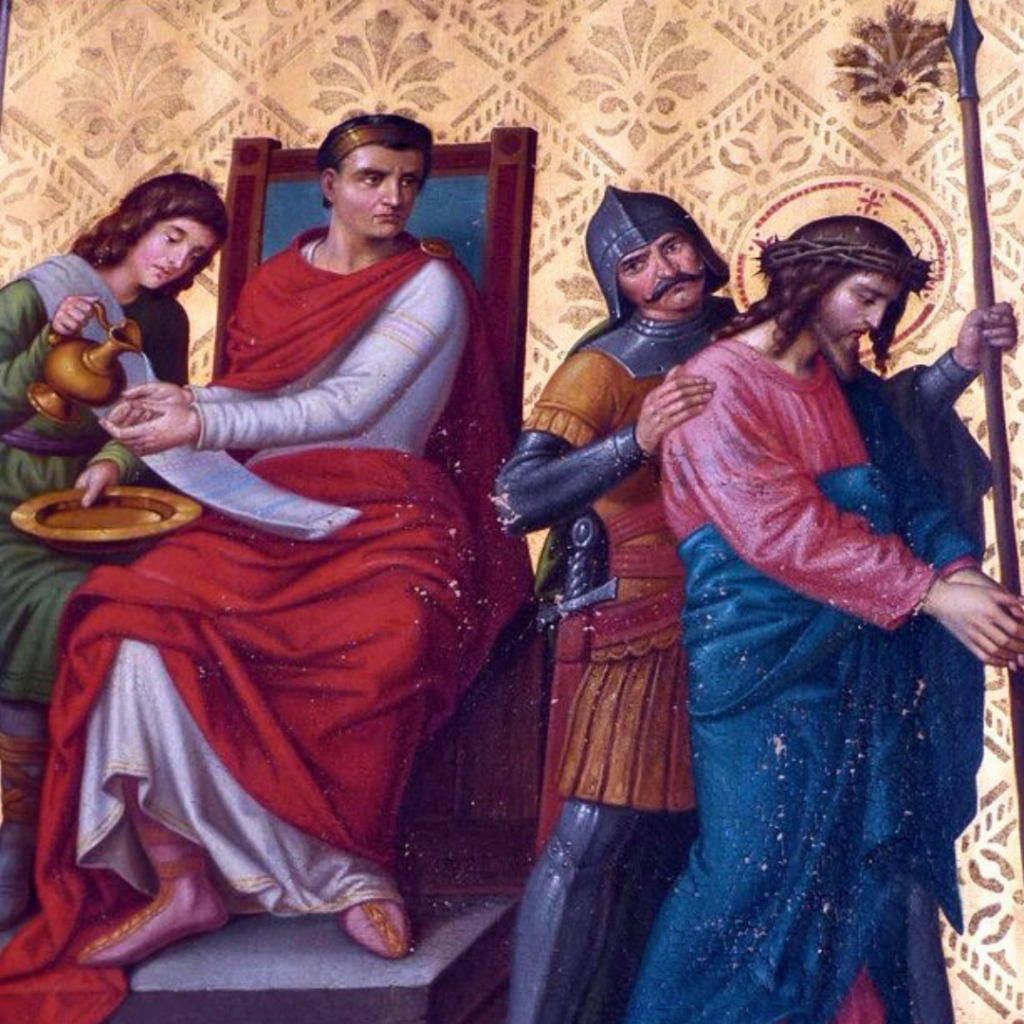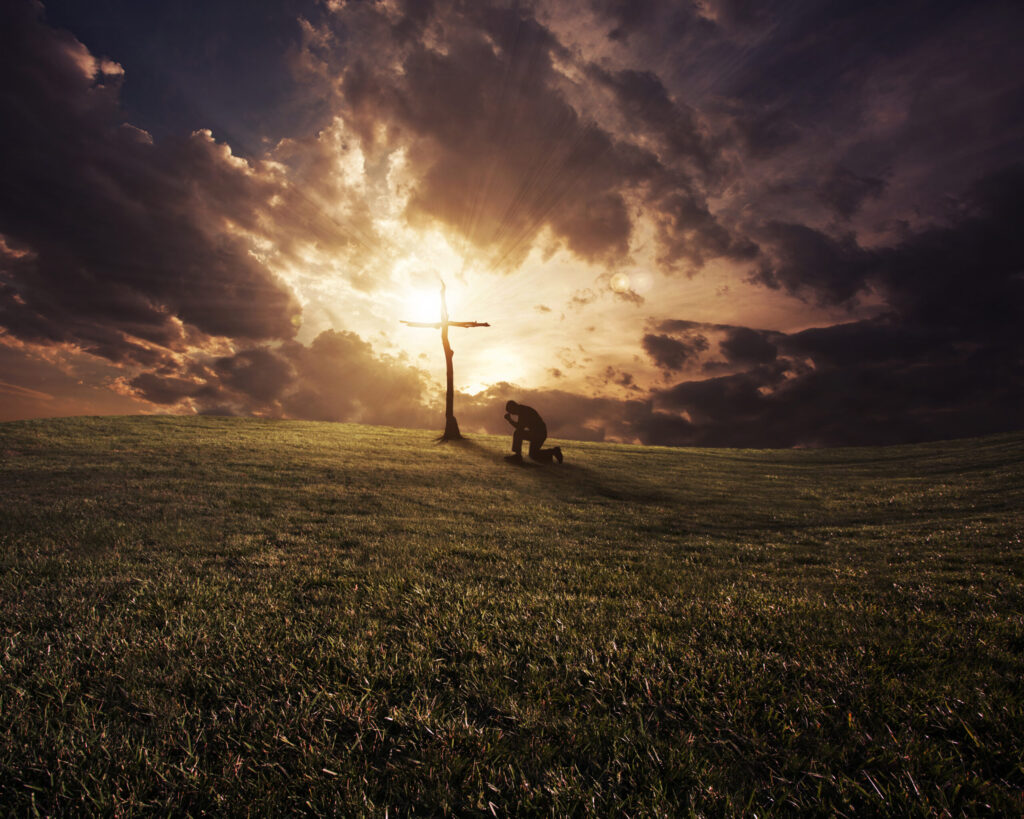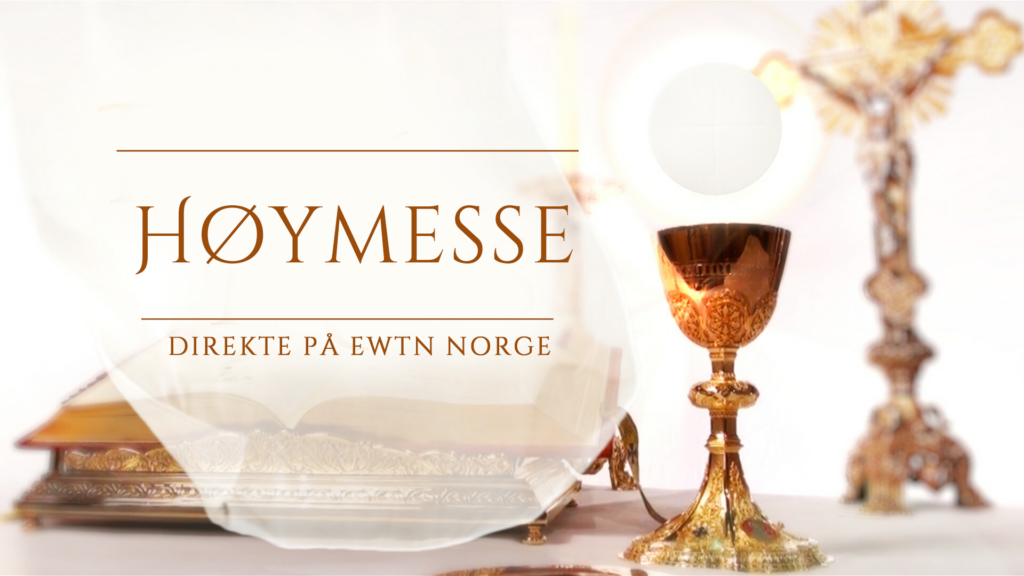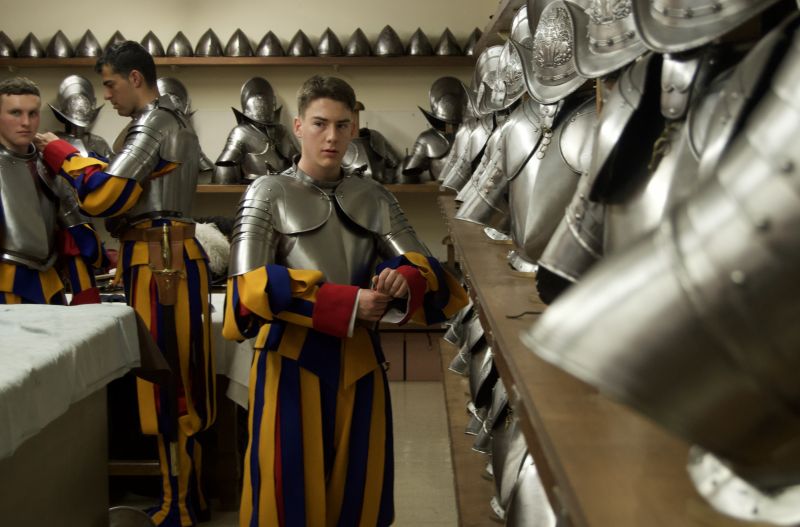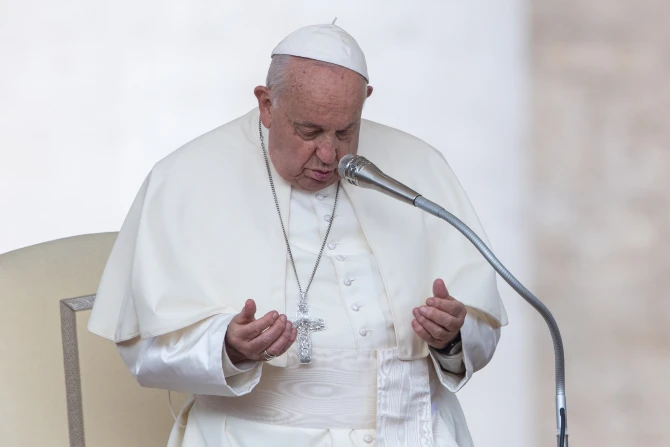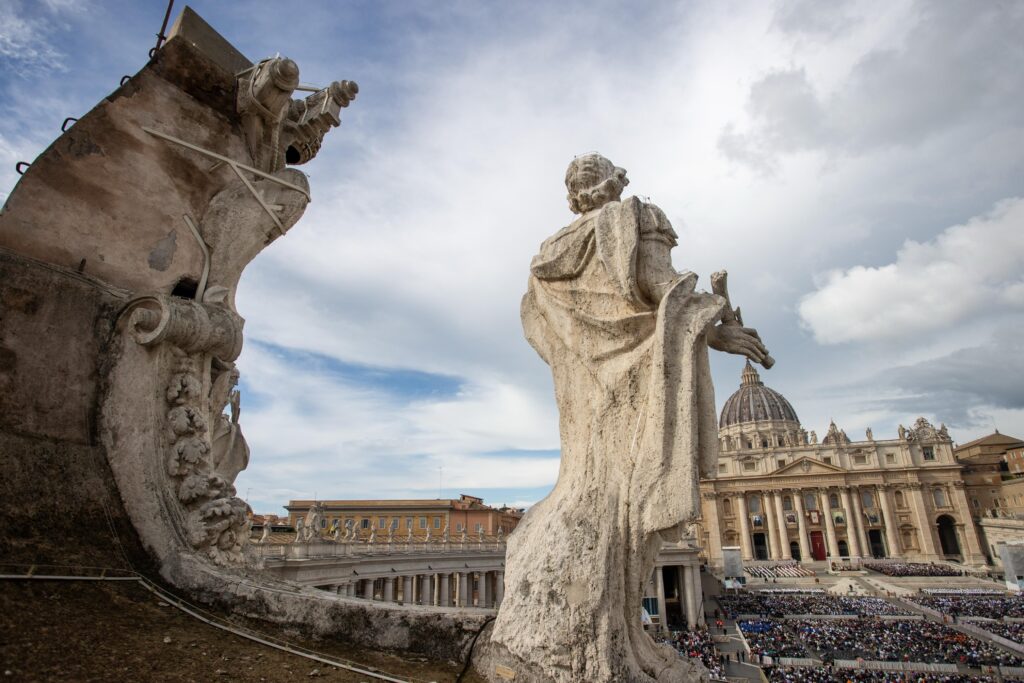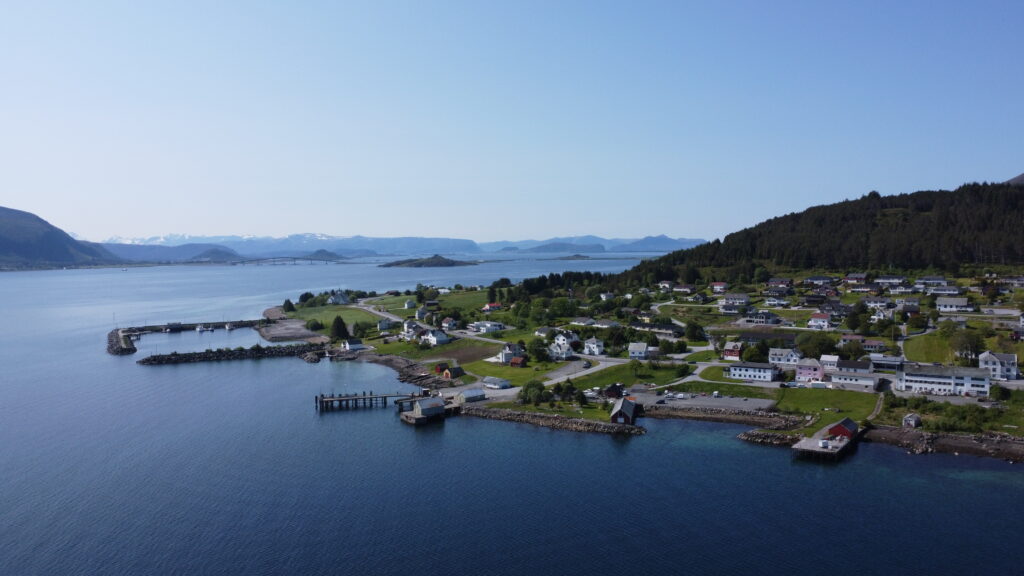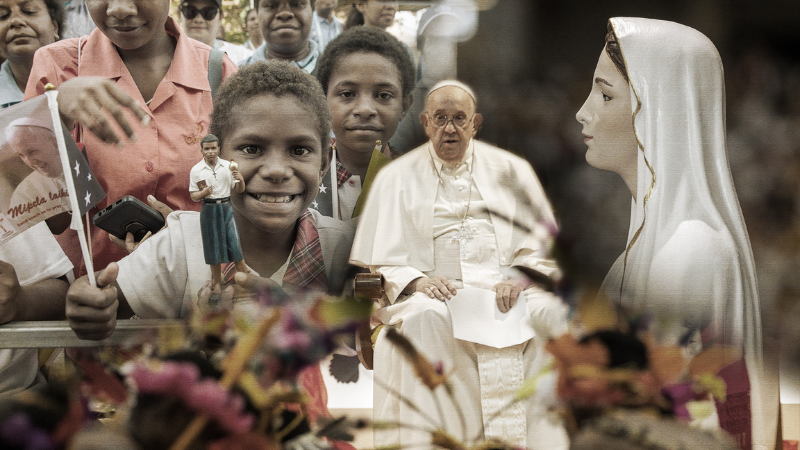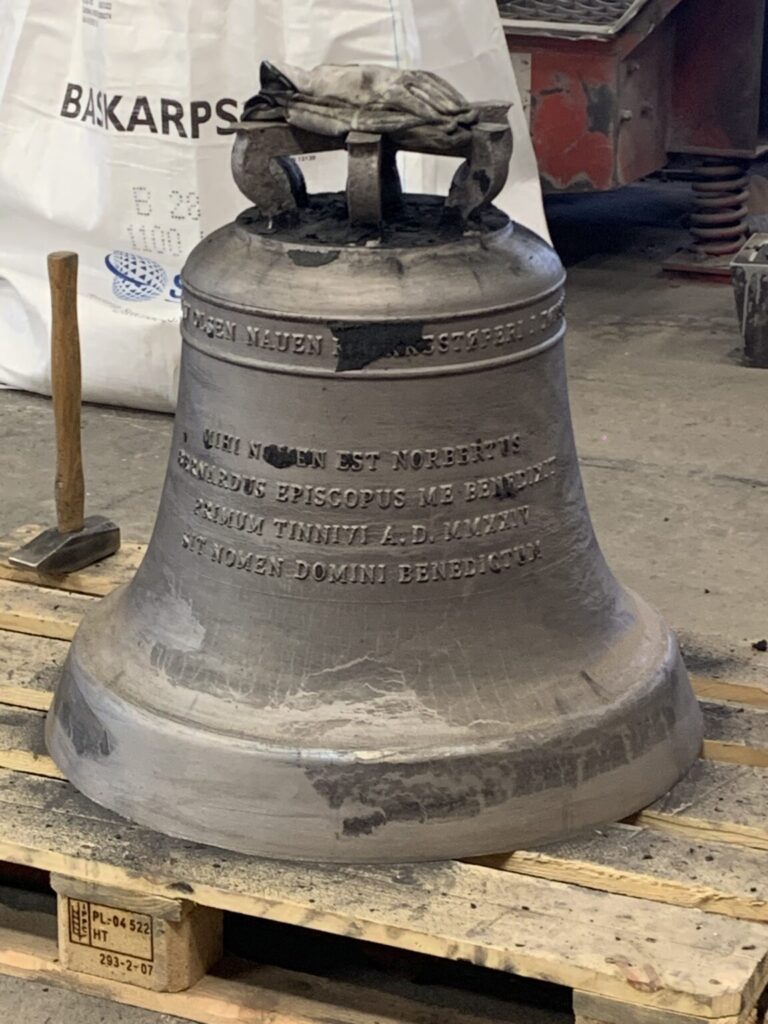Tirsdag 24.januar gjorde pave Frans et lenger intervju med Associated Press. Under kan du lese hva pave Frans sa i en engelsk oversettelse gjort av Alan Koppschall ved vårt kontor i Vatikanet.
Transcript of Pope Francis AP Interview
The Associated Press had a lengthy interview with Pope Francis on Tuesday, Jan. 24. The transcript follows:
AP: First of all, I would like to thank you again for taking the time to hold this interview. It is an honor for us and for the Associated Press. And, to begin: Holy Father, this has been a difficult period for you, with the passing of Benedict. The pope emeritus accompanied the first decade of your pontificate. How do you evaluate the institution of the pontiff emeritus? After that first experience with Benedict.
Pope Francis: Benedict was a lord; he never lost his lordship and at the same time he put himself on a level…. On the side. In the early days he came to the ceremonies, the conclaves, some celebrations. He was. He came to eat at Santa Marta in the dining room…. Then he got sick, sicker and sicker and he stopped coming. He stopped going out. He only went out for his walk every afternoon.
I used to visit him and, yes, when there was a consistory, I would take him to the new cardinals. He was happy for me to visit him. Lately the visits became difficult because he already spoke very softly, very softly. And there had to be Sister Birgit (Wansing), who is the 40-year-old secretary he had, or Monsignor Gänswein, who knew, listened, and repeated what the pope said. I remember the last visit in which he spoke to me, at the beginning of the year, which was almost impossible.
The last visit, when he was still conscious two days before his death, on a Wednesday, when they called me, I went there. He looked at my hand because he could not speak and the coexistence was, I would say on his part, heroic. Because it is not easy to invent a coexistence like that after a thousand years. He was very generous, very broad, and it is true that some people wanted to use him, and he defended himself as much as he could from that. And I have no words to describe his kindness, right? He is a gentleman, an old-fashioned gentleman.
AP: Do you already have an idea of what you would do differently if the time comes for your retirement?
Pope Francis: I was asked once, what would you do? Well, I am bishop emeritus of Rome, if I resign. I go to live in the Clergy House in Rome, and that’s it. That is to say, Benedict’s experience already gives room for the new popes who resign to insert themselves in a freer way, because he was still a slave, in quotation marks, of a pope, wasn’t he? Of the vision of a pope, of a system, right? Slave in the good sense of the word. In which he was not entirely free, as perhaps he would have liked to return to his Germany and continue studying theology from there. But he did everything he could to be as close as possible. And this was a good intermediate solution, a good solution.
AP: And you are going to promulgate norms, to regularize this new institution of the Church?
Pope Francis: That of pope emeritus? It did not occur to me. I tell you the truth. It did not even occur to me to make a testament about myself, no. I think the thing has to happen. I think it has to happen by itself, don’t you? And after some more experience, then it could be more regularized or regulated. But for the moment it did not occur to me.
AP: Does the death of Benedict change anything in your horizon, of the pontificate or of your own retirement?
Pope Francis: Well, I lost a father and for me it was a security when faced with a doubt, to ask for the car and go to the monastery and ask. I lost a good companion.
AP: Did you consider him as a father?
Pope Francis: Yes, it was a feeling of veneration. I am going to be bolder. Despite only a ten-year difference, I considered him a grandfather, with the wisdom of a grandfather, right? In other words, an existential experience. He asked me questions, and it’s very, very detailed.
AP: Criticism of you by some conservatives has increased after Benedict’s death. You had the book by his private secretary, the memo by Cardinal (George) Pell, a lot of criticism. Do these criticisms bother you?
Pope Francis: One prefers not to have them. For peace of mind. They are like hives, which bother a little bit, but I prefer that they do, because that means that there is freedom to speak.
AP: So it seems.
Pope Francis: There is freedom and that does not pay. It is worse if it is underhand. In some of the criticisms that came out, I even discussed them with them, and some of them came here and yes, I discussed their criticisms. Normally, as mature people, we talk. No, I didn’t fight with anyone, but I gave my opinion, and they gave theirs. If it’s not like that, it creates a dictatorship of distance, I call it, where the emperor is there, and nobody can say anything to him. No, let them speak because the company, the criticism, helps to grow and to make things go well. In this, one who is an example – and I allow myself to name him – is Cardinal Re. Cardinal Re tells me what he thinks. Afterwards, maybe I am wrong, but he tells me, and that is a great help.
AP: Do you feel more exposed to these criticisms now, without Benedict at your side, or do you feel freer?
Pope Francis: I would not relate it to Benedict, but to the wear and tear of the ten-year government. The government wears out. And well, first the surprise. “A native from South America, come on, now let’s see what he can do, what can he come up with.” Good things, and when you start to see the defects I have, you don’t like it, the different way of thinking: there is criticism. The only thing I ask is that they do it to my face, because that’s how we all grow, right? The same thing happens in a family when you dare to talk to your father or mother about things you don’t like, the family grows. Dialogue is important, even if you don’t like it, but it is important.
AP: In a few days we are going to travel to Congo and South Sudan, two countries suffering the consequences of colonialism and decades of conflict. What will be your message?
Pope Francis: Some background on this, that one has to prepare oneself. There is a historical, geographical reality. In Italian we say “Africa va sfruttata”, that is, “Africa is to be exploited”. And that is a colonialist mentality that remains. Africans are a tribe, they are blacks, they are this. In other words, diminishing qualifiers, isn’t it? And that is a problem of our attitude and of not yet courage, of total independence on their part.
Tribalism is also very strong. For example, to appoint a bishop in a diocese, one has to make sure that he belongs to the group. It does not say tribe, of the group. When I was in Rwanda, I don’t know if you remember in the stadium, no, in Kenya, sorry, in Kenya. – I lost my mind. – When I was in Kenya and in the stadium, I talked about tribalism, and everybody stood up. They said “no to tribalism”. It was a cry from the whole stadium. They, themselves, feel that difficulty.
It is a people that is consolidating more and more in freedom. About six months ago – perhaps you remember – I had an hour and a half of dialogue through Zoom with some university students from the United States. It was conducted by the secretary of the Commission for Latin America, Dr. Emilce Cuda, and it was a very nice experience. She herself prepared a similar experience two months ago with African university students. One of the riches of Africa is its intelligence. The young people are highly intelligent. They have a future. However, a future that cannot take off because there is also the problem of internecine wars between different cultures, not to say different tribes.
Yes, Africa is in ferment and is also suffering from the invasion of exploiters, isn’t it? It is said that Africa was given, the countries of Africa were given independence from the ground up, but the subsoil was left in the hands of the colonizers who would come later. It is a whole process, a cultural process as well, which must be accompanied. We cannot go to Africa with our finger like this, can we? We have to listen to their culture, dialogue, learn, and talk. Promote. It is a fascinating culture. But come on, this is the third trip to Africa that I am making now. Yes, the first one in the Central African Republic. It was wonderful. It was wonderful.
AP: Then Mozambique, Mauritius…
Pope Francis: And then this one.
AP: In South Sudan there are a large number of weapons circulating in the civilian population.
Pope Francis: Where?
AP: South Sudan.
Pope Francis: Ah, South Sudan, I had not heard.
AP: There is a very big problem of the number of weapons moving in the civilian population. Every person has a gun and you have often condemned this gun industry, the death dealers you called them. And also, in my country we have a large number of weapons among the civilian population and frequent massacres. A few days ago, a few hours ago, we have had another one.
Pope Francis: Again, yes.
AP: And this condemnation of these death dealers, does it also apply in places where it is technically legal to possess weapons or where people see the need to defend themselves?
Pope Francis: I say, when you have to defend yourself, you have to have the elements to defend yourself. Another thing is how that need to defend oneself becomes longer and longer and becomes a habit. Once a very wise man told me: “if for one year there were no weapons manufactured in the world, just one year, hunger would end”.
The arms industry is one of the most powerful, and one says, this is how far we have come. That is, instead of making efforts to help us live, we make efforts to help us kill. And about that (I) call my attention to myself: “please, let’s say something that brings it to an end”.
Many times, it is said that wars, one of the purposes of wars, is to use the weapons that you have and to experiment with new weapons. It is not the only purpose, but wars are used to experiment. For example, I read that there were drones going around in another country and that it was a new thing. They were probably experimenting in warfare. I’m not saying it’s illicit, but it’s common to do that.
The world is obsessed with having weapons. The countries, today instead of trying the weapon of dialogue, of understanding, of negotiation, we go to the weapon of arrogance, of war: that is more at hand. On this point, I would like to move on to war, if I may, which I think we must realize. In a century, a little more than a century, three world wars: and this one, which is a world war. It started out as a world war in bits and pieces, but now the whole world is involved. When I went to (the military memorial at) Redipuglia in ’14, for the 100th anniversary…
My grandfather went to war in the Piave and he used to tell us about the war. I saw the graves, I saw that. I was tender as a father, and I cried; I saw young men lost. Then, a few years later, on November 2 – every November 2, I go to a cemetery to celebrate – I went to Anzio. There were the fallen of the Anzio landing. I looked at the age of these boys. And I was moved. An experience, I forget was when it was, I think it was 60 years since the Normandy Landings, when several heads of government gathered to pay tribute. And that was tremendous: 30,000 kids were left on the beach. The Nazis were waiting for them. It is true that it was the break in the resistance to liberate Europe: 30,000 children.
I think of the mother who receives news of her son. “Madam, I have the honor to tell you that you are the mother of a hero. And here is the medal.” “Yes, a son was stolen from me.” A closer experience: when I was in Romania. Especially in Romania, but also in Slovakia. When I drove through the small villages, people were there to say hello. They would say on the radio, on the phone, that I was passing by. Young men and women, young boys and girls. Old women, almost all women. There were no old men. It shocked me, the war… depopulated. I mean, war is cruel. If we could learn that… I don’t know what else to say.
AP: Exactly in a month it will be the anniversary of the Russian invasion of Ukraine. February 24, that’s only a month away. You have insisted on the need for dialogue, for that conflict, “even when dialogue with the aggressor stinks”.
Pope Francis: You remembered that.
AP: What are the real possibilities for dialogue? Especially now that the war is taking on nuclear, religious, everything dimensions.
Pope Francis: My impression is that everyone wants to dialogue, but they are looking for a way to do it so as not to lose ground, to dialogue with conditions. There are attempts at dialogue regarding the release of prisoners. I have witnessed several processes that have taken place here. For example, the exchange of prisoners from the steel mill, from the steel factory, was the result of a very good mediation, well done. Women, very well done. Women are ideal for this; they know how to negotiate better than men and there is an unspoken dialogue.
Almost no, if there could not be a dialogue, it would be closed. No, in fact, there is… The Turks are doing a good helping role. Yesterday I said goodbye to the Turkish ambassador, who is being transferred, and I told him to thank the president, the Turkish authorities for the effort of dialogue. They were the ones who unblocked the sea for the grains. So, they are doing a good job of dialogue and liberation. In fact, some of the soldiers from the steel mill were released in Turkey, right?
There is dialogue, but there is also the firmness that no, I continue to reconquer what I believe is mine and I continue so that they do not take away what I believe is mine.
AP: And the Vatican’s effort in this change is continuous?
Pope Francis: As it usually happens, they ask and the list is sent to the channels here, and in this room, I have received several times envoys from the Ukrainian government. And in the Palace, I received a minister, also an envoy. And with the Russian ambassador there is a very good dialogue. He is a man of great humanity. I was also impressed when I received his credentials almost seven years ago. He is a humanist and a man who is open to dialogue.
AP: Have you had the opportunity to speak with him after this meeting?
Pope Francis: Since that second day? Yes, he has come here, and the telephone. There is a good relationship between a head of state and the ambassador, and the Secretary of State and the ambassador. A good relationship. And that is largely due to his diplomatic skills. He is a luxury diplomat.
AP: Let’s talk about China. The Vatican has continued to defend this agreement on the nomination of Chinese bishops in the face of criticism that it’s a betrayal of Catholics in that country, and one of the most vocal critics is Cardinal (Joseph) Zen. You met with him a few days ago, can you tell us what you talked about and how that meeting went?
Pope Francis: He is a charming old man. He is charming. With the Chinese, everybody is charming, when they want to be nice, they are nice. He is in a process that is administrative, something like that. I didn’t quite understand what it was, something like if you get caught on the street driving without registration, a disciplinary thing. And finished, they will make you pay a fine and that’s it.
What does Cardinal Zen do for a living? As a prison chaplain. And he’s in jail all day long. He is a friend of the communist guards, of the prisoners. They all receive him well. He is a man of great sympathy. The fighting part of Zen has kind of disappeared. I am not saying that he is not there; he is, but he hides behind this pastoral part. We were chatting here for a while and then his secretary came. I had not brought down books for the secretary, as a gift. So, I said, “Let’s go upstairs to get the books”. Zen and the secretary came. So, in front of my study, upstairs, where I have my bedroom and reception room…. Here, I have the Madonna of She Shan that was given to me as a gift, a statue. Zen saw it and like a child began to cry. He is a tender soul, Zen, the Bravo Zen. And then, well, we saw the books they wanted and he left happy, with a lot of humor. And he told me that he is very happy with the work he does, the pastoral work of the house.
And as the Chinese are eternal, we will have to wait, what, several years for him to leave, but I cannot appoint a cardinal there because there are already three cardinals there. One succeeds the other. The current archbishop is very good, from Hong Kong. He’s a very good Jesuit, very good.
AP: And what are the next steps in this dialogue with China? Taking into account the relationship with Taiwan.
Pope Francis: For the Chinese, time…. But we are taking steps. Each case is looked at with a magnifying glass. No, yes, there is dialogue? And that is the main thing, dialogue is not broken off. And the Chinese also have nice gestures of courtesy towards us. Sometimes they are a bit closed, sometimes not.
There is another problem we have to take into account. We, if there is a problem here in Italy, we say we have a premier, let him solve it and that’s it, and let him issue the decree. We have a parliament, a decree. In China they are very different provinces and sometimes with different governments that do not understand each other at times in the national party meetings, that fight, there is, I do not say infighting, but from a point of view of infighting.
So, what is done in a governorship, what a governor does in a province, maybe the other one does not do, he is more closed, this one is more open…. China has to be looked at in this way because of its various provinces, which are very diverse. China is a world. And China… You have to walk with patience for China. I admire the Chinese people.
AP: Let’s move on to Latin America. Associated Press has a strong following in Latin America, in a continent that we know you hold close to your heart, but the region suffers from problems, right? Poverty, violence, discontent with politics, and the effects of climate change. All this contributes to mass migration, to the richer north. What role does the Church have to play in this complex context?
Pope Francis: The Church has to play a role in its own country, seeking that dialogue in the faction, in the internal dialogue, and always stay behind. When the Church sets itself up as a leader, it is wrong. The Church is a servant, dialogue. The Church has to help them to sit at the same table. The negotiating table has to serve the people, the Church. I like to tell priests that I want them to be shepherds of the people and not clerics of the State, like “le monsieur l’abbé” of the French court. State clergy is a temptation. We have it, when one reaches a point where he thinks he is the master of the universe.
Servants of the people of God. To accompany the people, to baptize the children, to teach catechism, to accompany the married couple, to caress the elderly. The pastor of the people, pastor of the people. And the function of the Church must be from there. Which does not mean that it does not also give its opinion on more general, or more political, or economic problems, that there is a social doctrine of the Church that can speak on that. But without getting involved in partisanship, right? And not to be afraid of persecution when it happens, or of being in a bad way with a government because one does not praise it enough.
I’m making this up, right? But in Latin America we have the great popular religious tradition of Latin America, and that certainly is a thing of the people that takes root. Now Cardinal Stella is going to Cuba to celebrate the 50th anniversary of his presence there, at the request of the authorities themselves, looking for? And there is more dialogue, dialogue, dialogue. And from the pastoral function. In Latin America we are also accompanying the more social processes, but from the social theology of the Church, not from the adhesion to one party or another.
The environmental problem was mentioned. In Brazil, for example, the deforestation of Brazil due to industrialization was a very serious problem that the Church denounced and has to help so that these things do not continue, because part of humanity is the Church. …. The Church did not wash its hands and say “I do not interfere in the environment”. We also have to fight for a good environmental policy. That’s why I wrote “Laudato Si”. The truth is… The problem with the Church is when it gets involved in these borderline things and makes a mistake. And it goes from shepherding that borderline situation to becoming a politician. And there it has to be a continuous, continuous discernment… and it is difficult. But Latin America has great examples of great pastors, great shepherds of the people.
AP: On the border, right? Mexico-United States.
Pope Francis: Well, there is the problem of migration. I believe that pilgrimages start from almost Panama through all of Central America to get to the United States. I celebrated mass in El Paso, you were there for sure, that day touched my heart. I don’t forget about the children’s sneakers. That is one of the hot borders. But there are others too.
AP: Even in Argentina. In neighborhoods of Buenos Aires.
Pope Francis: Argentina, at the moment I don’t do politics. I read the data. They have an impressive level of inflation. In the year 55 – you were not born – in the year 55, when I finished my high school, the poverty level in Argentina was 5%. Today it is 52%, I think. What happened? What happened? Bad administration, bad policies. I don’t know if you know that cultural theological story, that the guardian angels of the countries went to complain to God and said to God: “Father, you were unfair with us, because -they are going to be angry, eh, with this-, because you gave each of our countries a wealth: cattle raising, agriculture, mining. And to the Argentines you gave everything, everything. They have all the wealth”, and they say that God thought a little. “But to balance, I gave it to the Argentines.” Don’t get mad, it’s a joke. I am Argentinean, I laugh, but there is some truth in it. Maybe we don’t end up carrying on with our things.
AP: What about a trip to Argentina?
Pope Francis: No, not at the moment. It was scheduled in ’97. Chile, Argentina and Uruguay. What happened? Michelle Bachelet was finishing and there were elections to choose a successor. And I wanted to go there while Michelle was there. So, we moved it to December, but it was already January in Argentina, you can’t even find the dog in the street. January is like the Roman August. So, if you remember, we did Chile and Peru. And then we did not schedule any more.
AP: We can talk about the Synod.
Pope Francis: Yes.
AP: About the Synod there are many hopes, expectations, especially in relation to women in the Church and the exercise of power. Is it possible that we can see real changes at the end of that process?
Pope Francis: Some say, “What novelty did this pope bring from the Synod?”. It’s not news from me. St. Paul VI, at the end of the council, was shocked by the exchange that took place in the council and he realized, or he already knew it, but he said it, that the Latin Church had lost the dimension of synodality. And things were prepared together to take the bishops and let the bishop decide, but more together. And there he created the Secretariat for the Synod of Bishops.
So, since that time, every three or four years, a Synod of Bishops has been held and synodality was created. By the time 50 years had passed since then, that process, much progress had been made. And it was my turn to issue a theological document on what had been done and what the Synod was about. That document set the course and is more important than people think. I did not do it alone; it was a reflection with the theologians. And one thing came out. There is the doctrine of the Synod.
Several things still needed to be adjusted, didn’t they? The problem of the Synod of women: can women vote or not? Please, finish with that. As if women were another species. No, it’s not a silly thing, but everything was stuck. When the Synod of Amazonia ended, there were many women and I said they could vote, but then I said no, no, let’s not make a mess because we are not going to create a disciplinary problem with what we have to do. And out of prudence we stopped that vote. It was a matter of prudence that the women understood very well and then we saw the need to have a Synod on the Synod.
As usual, all the bishops of the world were consulted about the preference and the first preference was the priests. The second, the Synod and the third, a social problem, I don’t remember which one. Of course, that all the bishops of the world put the Synod in second place is important and that is why we chose to have a Synod on synodality. Synodality is not an attitude of taking surveys, it is not going to ask people what they think, but it is the participation of the people of God in the elaboration of normal pastoral care and in the elaboration of decisions. And we are not used to it.
The Eastern Church is used to it, they have preserved it. The Orthodox Catholics have kept it and they have the Roman Synod. We do not have it. We are learning. And of course, there are many imperfections and we still have to learn. And we have to see this process in this panorama of learning to be synodal. That is why we do it in two stages, like the family. To modulate within ourselves and to give already a very clear synodal theology to the Church. Elaborated synodally by all. It is a step forward, a step that is to democratize the Church? No, that is not the word, but that each Christian takes his responsibility and not only gives his opinion, but commits himself to his opinion. That is more or less it. And I want the thing to go well. I pray for it to go well; I pray for it to go well because it is the maturity of the Church. And is this going to take away the Pope’s authority? No, not at all, not at all. On the contrary, it will enrich it more.
AP: But are you worried that there might be disappointment at the end, among people who perhaps expected more (or less)? Because I understand that it is a process, but in the end, people who want women to be ordained as deacons or the Church to change its doctrine on birth control?
Pope Francis: Well, those are the previous agendas. This if you remember, it happened at the Synod of Amazonia. By the press, by the press it had been installed that from the Synod of Amazonia the “viri probati” had to come out, right? The priesthood for married men. And so many bishops, do you remember, came with their guns pointed at that and they started talking, they went aside and a problem arose, the catechists. ‘No, we have few catechists’ And Africa? African pastoral ministry is carried out by catechists and you more or less have catechists. That is a problem.
Secondly, there are few priests from the same country that has a Masonic zone who want to go there. Well, solve the problem and let them go to the priests there. Third, a seminary for aborigines. There was one, but it can’t be because the seminary for aborigines closed. And fourth, I don’t remember which one. There were four problems that unconsciously displaced the problem of the “viri probati” and in the end it had almost no strength because it became concentrated. This is the value of a synod, because the protagonist of a synod is the Holy Spirit. Whether we like it or not. And the Holy Spirit has two things: to make a mess, to make a little confusion, as he did on the morning of Pentecost, through the charisms, and then to create harmony.
The Holy Spirit does not create unity, He does not create agreements: He creates harmony, which is still superior. St. Basil, who has a very beautiful study on the Holy Spirit, defines the Holy Spirit as “Ipse harmonia est”. He is the harmony; he is the one who makes the harmony of the Church in the midst of diversity. A Church that is all discipline… So, it is a Gestapo, it is not a Church. The Church is the richness of unity in diversity. And the champion who does that is the Holy Spirit.
The synodal idea goes that way. We did not give much importance to the Holy Spirit in our Western theology; the Easterners did. This is the moment to say to the Holy Spirit “help us”. That is the factor that is the confusion, yes. But then unity, which is harmony, not equality.
AP: But these processes make some people very nervous. There is a strong resistance in the whole process because they see what is happening in Germany, where there is the blessing of same-sex couples, and so on. So how do you reconcile this need to develop and to listen and to accompany with a Vatican that very often is also the one that puts the brakes on?
Pope Francis: The German experience does not help, because it is not a Synod, a synodal journey in earnest, it is a so-called synodal journey, but not of the entire people of God, but made by elites. And about this I am careful not to speak much, but I have already written a letter that took me a month to write. I did it alone and when they ask me, I say “come back to the letter”.
Then I had a meeting with them here and now the Congregation for Bishops, the Doctrine of the Faith and the Secretariat of State have made a clarification on three or four things that came out in the dialogue here. The synodal journey in Germany is starting from the dioceses of the villages. This was a bit elitist and does not have all the procedural consensus of a Synod as such.
Anyway, there is dialogue and one should never break the dialogue to help, right? But the German synodal experience is beginning or has begun in the bishoprics, like everyone else, with the people of God, and it is going ahead. Here the danger is that something very, very ideological will seep in. And when ideology gets into the ecclesial processes, the Holy Spirit goes home, because ideology overcomes the Holy Spirit. Anyway, where I have dialogue, they have good will, they don’t have bad will. It is perhaps a very efficient method. That’s funny.
You mentioned some things to solve that they want to solve, but you solve this on the basis of what criteria? On the basis of your ecclesial experience, taking from the tradition of the apostles and translating it to today, or on the basis of sociological data? Therein lies the problem, the underlying problem. But we must have patience, dialogue and accompany these people in their real synodal path and help this more elitist path so that somehow it does not end badly, but is also integrated into the Church. Always try to unite.
AP: There is one issue that is complicated, the criminalization of homosexuality. It is an issue that is increasingly discussed, but there are many couples [countries] that have criminal laws against homosexuals and some even contemplate the death penalty. Even where these laws are not enforced, the norms contribute to a climate of violence, discrimination against the gay and trans community. What is the position of the Church? What should the Church do, since there are bishops who support these laws?
Pope Francis: Yes, in the Catechism of the Catholic Church, it says that people of homosexual tendency have to be welcomed, they should not be marginalized, accompanied if they are given a place. In my trip to Brazil and my first trip, I said that phrase that bothered some people, it bothers them. If there is a person who seeks God and is sincere, who am I to judge. There is the Lord.
On the trip to Ireland, here the attention was then turned to the letter of McCarrick, no, of Viganò. Viganò’s letter. And this matter was left aside. But there I managed to say that a family that has a son or a daughter with homosexual tendencies does not have to dismiss them, they have to create the family framework for them to live in peace. And the condemnation of homosexuality goes back a long way.
Today, for example, I believe that there are more than 50 countries that have legal condemnation, legal condemnation, and of these I believe that ten or so, a little bit around, have the death penalty. They don’t name it directly, but they say ‘those who have unnatural attitudes’, that is, they try to say it in a hidden way. But there are countries that have this strong tendency, or at least cultures that have this strong tendency. I think it is unfair.
Here in the audience, I actually receive groups of people like that. I did it in general, I greet them, people who come in groups. One woman who works a lot with this, this is an example, I want to say it, is an 80-year-old nun. Sister Geneviève, who is one of the chaplains of the circus, lives in a caravan. They belong to the Sisters of Foucauld, three of them live there, in the circus. And she brings me, I don’t say every Wednesday, but at least two, three Wednesdays a month, a group of people with a priest who also works there.
We are all children of God, and God wants us as we are and with the strength that we each fight for our dignity. Being homosexual is not a crime. It is not a crime. Yes, but it is a sin. Well, first let us distinguish sin from crime. But it is also a sin the lack of charity with the neighbor, and how are you doing?
I mean, I distinguished that. And the countries that have the death penalty are ten, twelve, I think, still, more or less. But funny, they never say the word: they say ‘dishonest actions’ or something. They use a twist to say it. No, that’s wrong. That’s wrong. It’s very wrong. I don’t think anyone should be discriminated against. Even more so, leaving the problem of homosexuality, let’s go to another problem. The biggest murderer, the biggest picador should not be discriminated against either. Every man and every woman must have a window in their lives where they can turn their hope, and where they can see the dignity of God. And being homosexual is not a crime. It is a human condition.
AP: And in the states that have these laws, can the Church contribute to repealing these laws?
Pope Francis: Yes, yes, they have to do it, they have to do it. What happens is that they are cultures, cultures in a state, and the bishops of that place, although they are good bishops, they are part of the culture and some of them still have their minds in that culture. Or not? Also, the bishop has a process of conversion. I do not have bad information from any of the bishops of those places, who are open to help not only in this, but also in other problems.
But tenderness, please, tenderness, as God has with each one of us. We return to the three categories of God. God has three attitudes: closeness, mercy, and tenderness. And these three are enough, the whole theology is there. A God who is close to me, who is in my hand. A merciful God who forgives me so many times. A tender God.
I don’t know if you saw the pop opera The Prodigal Son. It’s from four or five years ago. Well, the prodigal son, all in pop music, is a very well done, very modern thing. And it ends with the boy telling a friend that he misses his father and wants to come back, and the latter says “look, write to him”, “I’m afraid he won’t receive me”, “write to him, and tell him that if he is going to receive you, he should put a white handkerchief on the balcony of the house”. And the opera ends, the two of them are on their way. The friend accompanies him to meet the father and when he turns around, he sees the house full of white handkerchiefs. God is generous in his mercy. The prodigal son, “but dress him, the ring, everything”. It’s over. He forgets, the father. If we preached more about that and not about nonsense, we would be better off.
AP: Let’s talk about abuse. You’ve passed a lot of laws to hold bishops accountable and properly instruct child sexual abuse cases. But we have seen cases where adults were victims of priests who abused not only sexually, but also their spiritual authority. This is the case of Marco Rupnik, there are victims with a very, very serious trauma, what do you think about the possibility of punishing these crimes more severely, or at least as severely as the abuse of minors?
Pope Francis: Abuse has always existed, always in all history, be it colonial political abuse, be it family abuse, be it sexual abuse. There are two letters of St. Francis Xavier that he wrote to some monks of the time there, I don’t know which oriental religion they belonged to, I don’t want to mention any of them so as not to slander. And he tells them: “Send those young men away from your convent”. In other words, there they also had this sexual service, an old thing outside Christianity and inside Christianity.
The relationship of the Greeks between master and disciple often included this type of love relationship. But it is not abuse, which is something else, when they take advantage of the weakness of another and invade him, isn’t it? This is something that was quiet in the Church. And when there was one of these problems, the bishop looked for a pastoral solution. Sometimes he would reduce him to the lay state, sometimes he would change his place. Then, thinking that with a good admonition, with some penance, he would change. He does not change because it is something that comes from within, it is a disturbance of the personality that leads him to do that.
The matter exploded within the Church, if you remember, with the Boston scandal, didn’t it? The Cardinal later died here; everything came down on him. Then the Church became aware of this problem, but seriously, right? And from that moment until now, more and more work is being done. I remember when I was in Argentina, a prisoner wrote to me from the United States. And he told me that when they made me a cardinal, that they had made me a cardinal and I answered the prisoner. But he never told me why he was in prison, and it was for abuse. When I became pope, I found out, I found out from the bishop. In the United States there was a serious discipline about this, about abuse.
The Church woke up and began to take measures. There is the Commission for the Guardianship of Minors, which is working well, with whatever limitations, but it is working well. And at least the people who are there have good will and there are no servile people. But we are at the very beginning of this and we have to go further with the conscience. Above all with the awareness that what happens in the Church, we also spread it to society.
In a meeting I had with a Brazilian Judeo-Catholic group that works on this. They are very, very, very learned, they said that between 42-46% of abuse cases are in the family. Then, I think 18% in clubs, in the world of sports, then in schools and 3% of Catholic priests. We are few, aren’t we? No, even one is disastrous and 3% is misleading. It is a lot. Even if it were one. And we don’t have to give in. And in that, relentless, because sometimes they are cases of perversion.
I had to intervene, which was my conversion to this and there I was converted, on the trip to Chile. I could not believe it. You were the one who told me on the plane, “No, that’s not the way to proceed, Father.” You went. I said, “That’s a brave girl, isn’t she?” I remember. I had her in front of me. And I went on and on and said, “What can I do? The head like this (makes a gesture of explosion). That’s when the bomb exploded, when I saw the corruption of many bishops in this. Well, to begin with, to pray. I summoned all the bishops here and we started a work that is still unfinished. But there you witnessed that I myself had to wake up in front of cases that were all covered up, right? You have to discover more and more every day.
The Abuse Commission is working well. And there the great genius that I, ‘chapeau’ thank him so much is Cardinal (Sean Patrick) O’Malley. This man led the way with his Capuchin simplicity, a Franciscan of God led the way. But we must not give in. You don’t give in on any case. And you will have seen the aberrations that sometimes arise from a case of abuse. Chilean cases, either by people of the Church or by lay people, I have read horrifying denunciations. It is a great shame, but it is a great grace, the grace of truth, and that is not negotiable.
We have to move forward. And help, don’t we? And put people who are fighters. The other day a bishop from the United States, from the south, came to me with a military man who had had that kind of experience and he told me about it and -excellent person- and we put him in a commission so that he could also help in all this. It is worthwhile.
AP: But in all these cases we are talking about abuse of minors. In the Church, it is still difficult to criminalize the abuse of an adult, because it is thought that it is all consensual, that we are adults, it has to be consensual. But we have cases in which it is not consensual because there was a prior abuse of trust or spiritual abuse, perhaps an abuse of authority and power. The McCarrick case, was testimony to that kind of abuse of authority with adults. And so, the question is, is the Church going to punish these crimes as severely as it has punished minors? With these 20 years, yes, it has made very important steps. But the question of adult abuse is an issue that people don’t want to talk about.
Pope Francis: No, we have to talk, we have to talk even more, I say. The category is “vulnerable adult”. At this moment, here, I am judging a case in the Vatican. Why? Because the jurisdiction was in the Vatican, although it was in Rome, but it was in the Vatican for legal reasons. And I am ultimately responsible for it, even though my vicar works there.
A case that at this moment there is here, of vulnerable abuse, of the vulnerable person, who is as if he were a minor, isn’t it? And one can be vulnerable because one is sick, one can be vulnerable because of psychic incapacities, one can be vulnerable because of dependence. Sometimes there is seduction. A personality that seduces, that manages the consciences and this creates a relationship of vulnerability, and then imprisoned. With the abused vulnerable adult, it is the same as if he were a minor, practically.
We are working on this. Moreover, there are cases, several parties, who are not minors, but “vulnerable adults”. This world is very hard among people in need. There are cases, which are in trial, of abuse of needy people.
AP: And the most current case is the case of Father Marko Rupnik. And there are questions, because the communication of the case was not very clear, because the Jesuit order was not very clear in saying what he had done, what happened. Then the questions arose, how was this solution decided?
Pope Francis: I am not clear about this, how it was the way, because it was the tribunal of the company. But one thing that the General of the Company had, which I praise, is that the instruction of the process, the part of the instruction, was given to the person in charge of these legal things of the Dominicans. The instruction was done by the Dominicans. I don’t get involved with that. That was a great thing.
The thing was in process because of a case that was settled. I don’t know how, but it was settled in the sense of common agreement. I think a compensation was paid, but I am not clear about the settlement, but it was settled. But during the half-time, the 25 or 30 years in Slovenia came up. That is to say that he spreads out, he realizes that he is in front of a very limited person, that they are powerful, sometimes. You see the great dictators that humanity had that did so much damage, fascism, Nazism, they are limited, but the damage they have done.
It is not a limitation that prevents them, it is a limitation that makes them criminals. And in this it helps a lot to distinguish between sin and crime. Sins are always forgiven. We are all sinners. But the crime, yes, I forgive it, but you pay, you repair the crime. And in that you have to be very clear. Oh, I forgive you, don’t do it anymore. No, no, no! Now you make reparation and see how to make reparation. And some have to leave the clerical state because they cannot continue in this kind of pastoral situation.
In the United States you have had cases like this, well, well known, haven’t you? But at this point the real doctrine that helps us so much is being given by the Commission on the Guardianship of Minors, which we also use for the vulnerable elderly.
AP: But in this case, did you have any role in the decision?
Pope Francis: Nothing. I was in a little procedural thing, which came to a past to the Congregation of the Faith. But I did not pass anything. Let it go on with the normal tribunal, because otherwise the procedural paths are divided, and everything gets muddied. Everything in the same channel. So, I had nothing to do with this. I always sent it there because it had started there, so let them finish it there. I will have to see if Father Rupnik appeals. Because he has to appeal here, but he has not done it, he has not done it. If the appeal goes to the Doctrine of the Faith, the Vatican will do it there.
AP: As far as we know now, the dicastery has declared it time-barred.
Pope Francis: It is time-barred, yes.
AP: So, many lament that these women who have been so traumatized have not had justice because the dicastery decided not to repeal the statute of limitations.
Pope Francis: In this there is a general behavior, whether it is the presumption of innocence or the statute of limitations, they are legal weapons of guarantee. I take care of them; I take care of them. That is to say, the presumption of innocence and many others. Because if we start to leave those guarantees, justice becomes very manipulable. I do not tolerate the statute of limitations when there is a minor involved. Of course, I lift it immediately. Not in this case, which does not mean that the person should not be prosecuted. But outside of this accusation, the statute of limitations has already expired. The statute of limitations is a guarantee.
Someone once asked me why… I jokingly said, because I am a guarantor. And that’s it, isn’t it? In other words, legal guarantees must be respected. But this does not mean that we wash our hands of the problem. There is a very serious pastoral problem. Then there are thousands of ways to go ahead with canonical processes, with punishments, reductions to a lay state, which does not have to follow this path of lifting the statute of limitations. Now, if there is a minor, I always lift it, or with a vulnerable adult. I always lift it.
For me it was a surprise, to tell you the truth. This, a person, an artist of this level, for me was a very big surprise, and a pain, because these things hurt.
AP: I imagine that after 2018 you see that this problem for you is a serious thing, that you have something to say in these cases as well.
Pope Francis: But when there are minors, the sleeve is tightly closed. Not wide sleeve, no, no, no.
AP: And there is also a problem there for the people of God about the transparency of these cases, because I remember that in 2019, you called all the presidents of the (episcopal) conferences, and they had three conclusions: responsibility, accountability, and transparency. And transparency is missing because nobody knows how these cases are progressing. For example, a few months ago we learned that the bishop emeritus of Timor-Leste, winner of the Nobel Peace Prize, was convicted of abuse. So, the people of God feel betrayed that they don’t know about these cases, and so the belief is that there is justice. But if one does not see justice….
Pope Francis: I understand. The case of Timor-Leste, I would say “distingue tempora et concordabis iura”. This is a very old thing, where there was not this conscience of today. But today, there is total transparency. And when the bishop of Timor-Leste came out, I said yes, let it be aired, what are you going to do, I am not going to cover it up, but those were decisions of 25 years ago when there was not this awareness. But in this we have to be very, very clear, very sharp, and very ashamed. But we have to go ahead because we help everyone. And the fact of abusing people is one thing, and it can start when you are a child, but it is spreading, extending and in society you can have thousands of cases. For example, the poor girls who are looking for work sometimes have to give in to be able to get a job, it is a very old thing and we have to fight for that too, but it is not easy, it is not easy.
AP: Can we expect more transparency from the Vatican in these cases?
Pope Francis: That is what I want. It is what I want, isn’t it? And with transparency comes a very beautiful thing, which is shame. Shame is a grace. I don’t know if it is used in English, but in Spanish, when a person has no canons, who moves, who does what he wants, he is a scoundrel, he lacks shame. And shame is a grace. I prefer a Church that is ashamed because it discovers its sins, which God forgives. Not a Pharisee Church that hides its sin, which God does not forgive.
AP: We have already reached the end.
Francis: For the final stretch.
AP: We would also like to ask you about yourself, Holy Father. How are you? How are your physical and emotional health? how are you?
Pope Francis: I’m a little crazy when it comes to emotions. I am fine. The knee, thanks to a good therapy and magnetotherapy, laser… the bone was welded. The operation was not necessary. I am already walking, I help myself with the cart, but I am walking. I still have to use this so as not to fall. Then the diverticulosis problem comes back, that problem, but it is under control. I am in good health. For the age I am, I am normal. I can die tomorrow, but come on, it is under control. I am in good health. And I always ask for grace, for the Lord to give me a sense of humor. Every morning, for more than 40 years, I pray the prayer of St. Thomas More: “Give me, Lord, a good digestion and also something to digest”. That prayer is in footnote 101 of “Gaudete et exsultate,” my exhortation on holiness. I ask for good humor, a sense of humor, because I have to help so many people and everything, and if I am bitter, I will not be able to help anyone. Know how to laugh at yourself too. That’s good. It’s good for me, to relativize one’s importance, isn’t it?
AP: When you think about the last ten years of your pontificate, what are the two or three moments you remember as the best? Do you have any anecdotes about that?
Pope Francis: The other day Cardinal Ravasi reminded me of one: they told me on Lorena Bianchetti’s program, and it’s true. I came here with a small suitcase, because when they made me cardinal, they gave me a red cassock in a ‘filettata’ and since I belonged to six congregations, I left it at the nuns’ house so I wouldn’t have to bring it with me when I came. Then, they were already here. And even more. We were very close to Holy Week. So, I said, “No elected pope is going to take office during Holy Week”.
I took my ticket to be in the diocese on Palm Sunday and I left the homily prepared on the desk. In other words, I came knowing that I was going back. Nothing even crossed my mind. The thing is, I became aware of the danger at noon, I had not realized it before. Because in the conclave there is a whole system of deposited votes. One gives them to this one, to another, until it is seen who they can be and then they come together. I had some deposits; I did not pay attention.
And today I started to talk to Cardinal Ravasi, walking. He tells me that he remembered it last Sunday and I told him that in my sapiential classes I used his book of Job, and we talked about how he had done it. And they were closing the door of the Sistine and we were in front, walking. The master of ceremonies came out and said, “And are you going in or are you not going in?” It was my unconscious resistance to go in, then I realized. What had to happen happened. It was God’s will.
Two key things: in the first vote of the afternoon, when I began to have many votes, Cardinal (Claudio) Hummes, who had him here, approached me and told me: “Do not be afraid, this is how the Holy Spirit works”. In the second, when I was already elected, he stood up, embraced me and told me “Don’t forget the poor”. These are strong moments. I did not expect that. Well, like a peace, a great tranquility. That is, that healthy unconsciousness that you must give in difficult moments. That was the moment.
Then, here, two days after I was elected, I went upstairs to see the pontifical apartment, which is not very luxurious, but it is huge. “I can’t live here, I’m dying. I need people. And there, going to the elevator where I was on the second floor, I passed by the guest room which is open, they were cleaning. I say, “What is it?” “It’s the guest room there.” Bedroom with its bathroom, a little living room to receive and a little study. And we’re cleaning up and Bartolomeo’s coming. That’s it. I stayed there afterwards. Bartolomeo to this day says I stole his room. And living with people makes my job much easier. The only thing I miss is not being able to walk the streets because I can’t, because as soon as I go out… like I did in Buenos Aires, but it was all very simple. I didn’t mean it as a double entendre. I tried to be spontaneous, of course, not to pose.
AP: And worse moments in the last ten years?
Pope Francis: Moments? Yes, sometimes. The one who helped me a lot was (Cardinal George) Pell, although they say that in the end, he criticized me. Well, he has the right, criticism is a human right. But I was helped so much by Pell, because he was the one who told me “The economic problem is here, here, and here.” And he took it in hand. Then he had a problem, where he gave so much good testimony, of patience. Then he came back. But he helped me a lot. Pell in the economic part was right hand. A great guy. Great.
AP: Since we are coming to the anniversary of your election, can you make an evaluation of that first decade? How did it go?
Pope Francis: It is difficult for me to evaluate. I am half unconscious, but I am conscious. I mean, I am calm. I see good things that are done, especially the things that others united with me do. I see things that have been corrected and things that still need to be corrected, and quite a lot. I see that the cardinals, yes, some who criticize, have the right to do so. But in general, we are united and it helps a lot. Above all, the union with the bishops and the Episcopal Conference is what I see most clearly. That helps me a lot. I sleep well.
AP: Yes, what remains to be done? We have a future of eternity, as you said. But what is left? Encyclicals, trips, forms? What is the priority for this new stage of your pontificate?
Pope Francis: To continue to be a bishop, bishop of Rome and in communion with all the bishops of the world. And stop being a power, stop being a court. For example, Castel Gandolfo was a bit of a court. The court spirit. In June, the court was moving there as from London you go to Scotland, the court. It’s that kind of court idea. It’s the last absolute court in Europe.
Well, there Castel Gandolfo, the great palace, is transformed into a museum, which is very good, because here there were things that could not be exhibited, they were put there. In other words, removing all appearance of court and giving it what is really a pastoral service.
The fact of living here helps me, because when the bishops come, they greet me, we are at the table, normal, which is a pastoral service of support to the bishops of the world, of communion with the bishops. And that, thank God, is being done, and the cardinals themselves are doing it. Yes, you can say to me, ‘this one and this one’ no, but they are old men – go and change their mentality – to respect and that’s it.
But the cardinals themselves, in the meeting we had of cardinals, the last one, were marvelous. How they even dealt with a serious problem such as the capacity of jurisdiction, who has it or not? Two cardinals with different positions, but discussing with a great height, yes, collaboration. I feel very much in company with that. Well, but yes, I want to be a bishop, please.
Well, thank you. You are the first of the class. Thank you for your support. Thank you for your work. For me it’s very important your work and the work of all the communicators, of the journalists, because they are the ones who translate the life of the papacy outside. So, I thank you very much for what you do. And go ahead. There is still a lot to do.
AP: See you on the plane.
Pope Francis: See you there. They let you go, this time? Because several dropped out this time, huh?
—
Editor’s note: In the reference to his trip to some South American countries as pontiff, it is correct that Francis said “97,” but the year it happened was 2018.
Vil du hjelpe andre mennesker med å vokse i troen og kjærlighet til Gud gjennom en gave til EWTN Norge – St Rita Radio?

